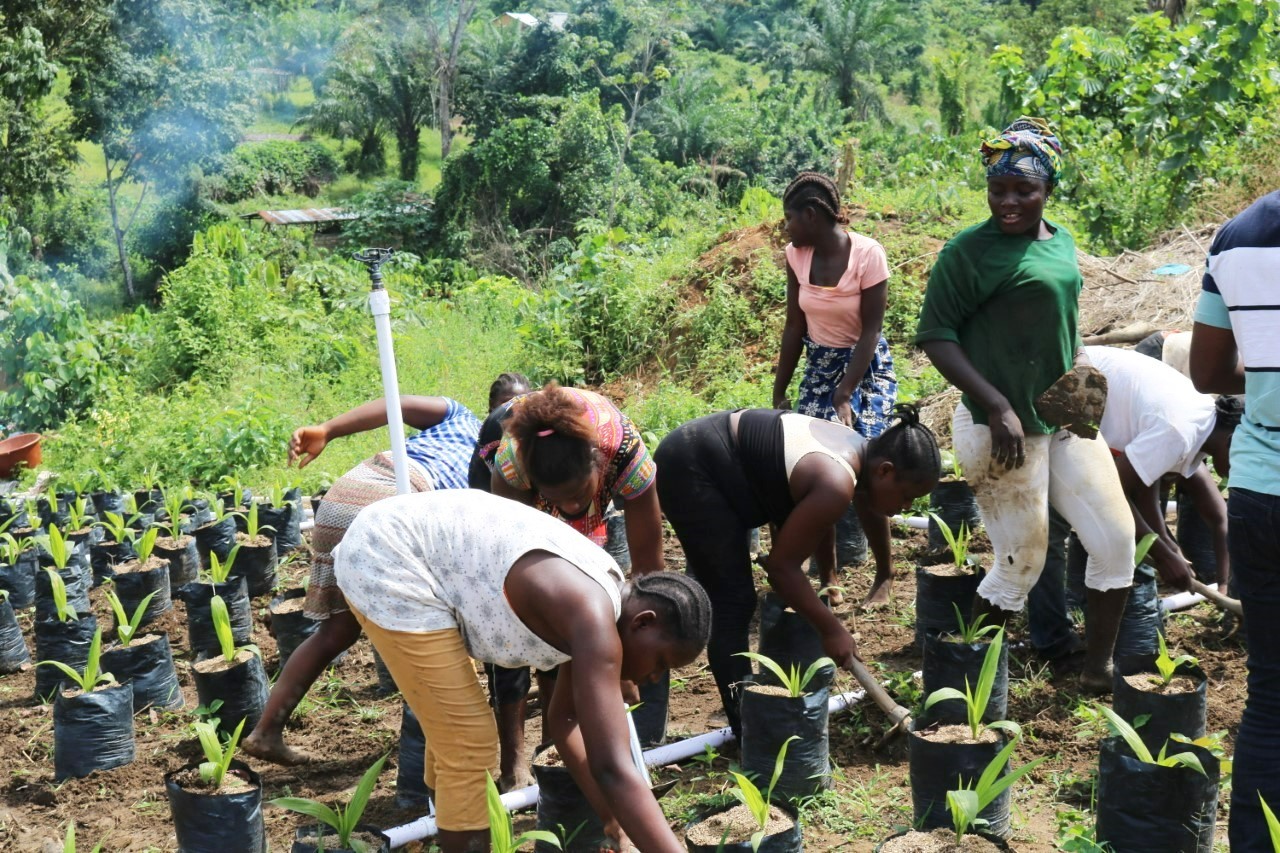National Stakeholders and Development Partners Endorse ACDP targeting rural communities
November 10, 2022

Local farmers in a rural area planting seedlings
National stakeholders led by Finance and Development Planning Minister, the Minister of State for Presidential Affairs and development partners have endorsed the Accelerated Community Development Programme (ACDP) which is Liberia’s single largest investment using a new approach specifically rooted in locally community driven development initiatives directed at the people of Liberia.
The ACDP will support those living in poor urban and rural communities, who do not have access to basic social infrastructure and services and income-earning opportunities.
The government of Liberia through the Ministry of Finance and Development Planning (MFDP) with support from UNDP convened a Local Project Appraisal Committee (LPAC) meeting on 9 November 2022 in Monrovia to formalize the document and commence the process of implementation.
During the LPAC, technical working groups comprising ministries, agencies, commissions, civil society organizations, and development partners considered issues of methodology, strategy, delivery mechanisms, and management arrangements while reviewing and providing final comments on the document.
“We want to see development visible at the community level using a decentralized bottom to top approach that allows citizens, especially rural inhabitants to experience and see how their taxes are working for them and to own the programme,” said Finance and Development Planning Minister Samuel Tweah.
Minister Tweah stressed that with the launch of the ACDP on 24th October 2022 by the President of Liberia to tackle the development challenges faced by both the urban poor and rural communities, it was imperative to commence its implementation immediately to help Liberians climb out of poverty, improve, and transform their living standards, and live healthier and longer lives, while reducing inequalities between rural and urban areas.
The government aims to mobilize USD100 million for the first three years of the programme 2022 to 2025. It has already made an initial contribution of USD3 million, and with support from UNDP, is currently negotiating with other development partners to secure the full financing needed to lift all Liberians out of poverty before the year 2030.
“There is a renewed sense of urgency to move forward with the implementation of this Programme to change the lives of grassroots community dwellers. The ACDP is a tool to deliver basic social and economic services as means to accelerate the implementation of the PAPD, and SDGs to bring development to the under privileged rural communities,” said UNDP Liberia Resident Representative Stephen Rodriques during the LPAC meeting.
Rodriques mentioned that the programme which will be piloted in a few communities within the first three years, all efforts being made to ensure a transparent process that has the full ownership and involvement of the respective communities.
The programme will also ensure that relevant capacities are built for a transition to a permanent national agenda that unlocks the potential to accelerate decentralized service delivery, principally through the county services centers, revenue sharing formula and law, and the Citizens Feedback Mechanism supported by the UNDP.
In terms of interventions, the programme would bring water, solar lighting, feeder roads, sanitation facilities, and farming equipment, among other things, to address the needs of the various communities around Liberia.
“We remain optimistic that the ACDP will help accelerate community focused development agenda to reduce poverty and reduce growing inequalities between rural and urban by providing rural communities with basic socio-economic infrastructure they yearn for to unlock their development potential. UNDP and the larger UN family are therefore proud to be a partner of choice in designing and implementing this programme to serve national priorities, and we look forward to working with the partners during its implementation to achieve the intended benefits to the country,” Rodriques concluded.

 Locations
Locations